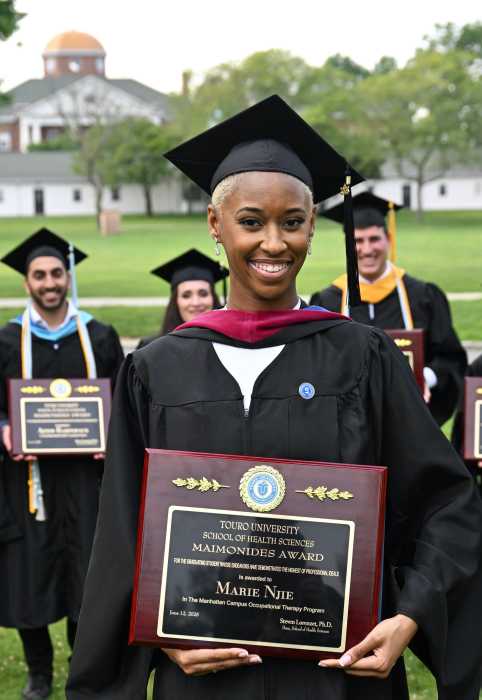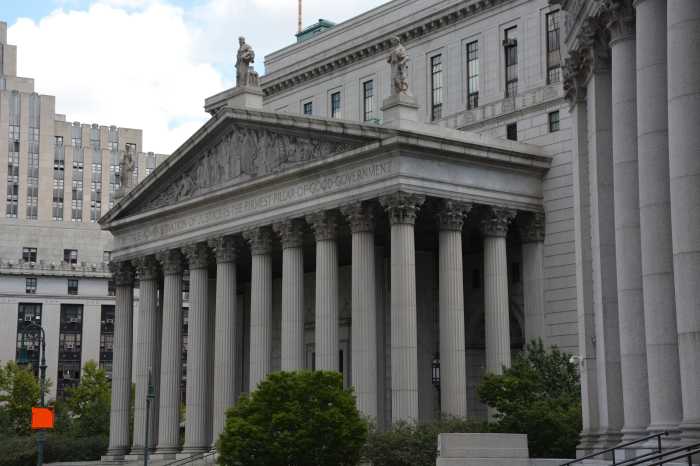President Barack Obama greets former President Bill Clinton after Clinton's September 5 address to the Democratic Convention. | BARACKOBAMA.COM
Since the 1992 Democratic Convention, when candidate Bill Clinton became the first presidential standard bearer to explicitly court gay voters, the party has moved incrementally –– though often awkwardly –– toward greater inclusion of LGBT Americans in the family portrait they have presented to American voters every four years.
As President Barack Obama closed the Charlotte gathering with his acceptance speech on September 6, it was clear the Democrats have now shed their lingering hesitancy about embracing the community’s major goals.
Warning those in the convention hall and the millions watching at home about the stakes come November 6, Obama declared, “If you give up on the idea that your voice can make a difference, then other voices will fill the void: lobbyists and special interests; the people with the $10 million checks who are trying to buy this election and those who are making it harder for you to vote; Washington politicians who want to decide who you can marry, or control health care choices that women should make for themselves.”
Making the argument that it was the American people who were responsible for “the change” his administration could claim credit for during the past four years, the president said, “You’re the reason… why selfless soldiers won’t be kicked out of the military because of who they are or who they love.”
And speaking to the poisonous political climate that has made cooperation between Democrats and Republicans nearly impossible in Washington since he became president, Obama said, “But we don’t think that government is the source of all our problems –– any more than are welfare recipients, or corporations, or unions, or immigrants, or gays, or any other group we’re told to blame for our troubles.”
In May, the president took what some said was a political gamble by announcing his support for full marriage equality after years of insisting he was “evolving.” By the time Democrats met last month to adopt a national platform for the fall campaign, approval of a marriage equality plank came quickly, without opposition. The respective platforms adopted by the Democrats and the Republicans have never been more starkly different on LGBT issues –– as well as on women’s reproductive health.
When Massachusetts Democrat John Kerry faced off against incumbent George W. Bush in 2004, gay concerns –– particularly marriage equality –– were still seen as wedge issues that worked against the Democrats. Republicans succeeded in getting state marriage bans on the ballot across the nation on the bet that they would draw evangelical Christians to the polls and help reelect the president.
Though Kerry had progressive views on gay anti-discrimination questions, he was ham-handed on the question of marriage –– opposing a federal constitutional amendment then under consideration but endorsing the proposal, backed by then-Governor Mitt Romney, to put his home state’s recent court ruling in favor of gay marriage up for referendum.
In 2012, Democrats have made the political calculation that if gay issues remain wedge issues, their party now has the advantage. Outreach on marriage equality at the convention paralleled the pitch that warned women that the Romney-Ryan ticket threatened their right to choose and to have affordable access to contraceptives.
In introducing the party platform on the first evening of the convention, Newark Mayor Cory Booker highlighted its promise of equality regardless of “who you choose to love.” Los Angeles Mayor Antonio Villaraigosa, the convention’s chair, told the delegates, “For the first time, a major party platform recognizes marriage equality as a basic human right!” Keynoter Julián Castro, the mayor of San Antonio, in a litany of what the Republican nominee stands opposed to, said, “When it comes to letting people marry whomever they love, Mitt Romney says, ‘No.’”
And when, in the highlight of the convention’s first evening, First Lady Michelle Obama spoke, she said, “If proud Americans can be who they are and boldly stand at the altar with who they love, then surely, surely we can give everyone in this country a fair chance at that great American Dream.”
(ILLUSTRATION: MICHAEL SHIREY)
According to the National Stonewall Democrats, 486 of the 5,963 delegates –– or just over eight percent –– identified themselves as LGBT. That total exceeded the goal the party had established by 16 percent.
The 2012 convention was the culmination of more than 20 years of progress by LGBT Democrats in claiming a full place at the table in their party. At the same time, resistance by the Republicans nationally to taking meaningful steps in the same direction and the stark likelihood that the GOP will control at least one house of Congress and, possibly, both the executive and legislative branches come January demonstrate just how tall an order LGBT Americans continue to have before them.
































